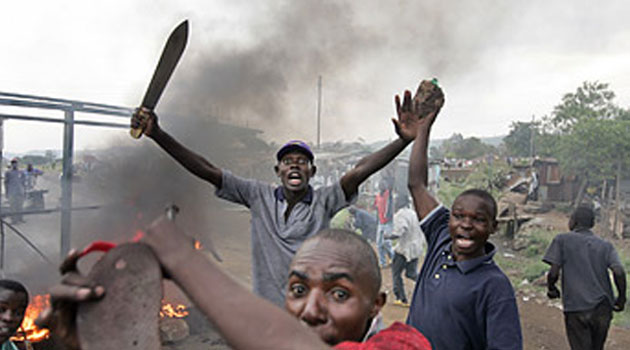
TVF Executive Director Pieter de Baan, told Capital FM News that there was no single conviction in the case hence no possibility to compensate victims who participated in the case/FILE
NAIROBI, Kenya, Feb 18 – The Trust Fund for Victims (TFV) of the International Criminal Court says victims who participated in Kenya Case II will not receive any reparations from the fund.
TVF Executive Director Pieter de Baan, told Capital FM News that there was no single conviction in the case hence no possibility to compensate victims who participated in the case.
“The Trust Fund may only redress victims in the case after a conviction and in the form of reparations so ordered by the court. The Trust Fund mandate to implement reparations on behalf of the court therefore may only occur in instances of a conviction.”
“If there is no conviction of a perpetrator at the ICC, then regretfully neither the court nor the Trust Fund is in a position to compensate victims in relation to the case. The Trust Fund is not permitted to award reparations (including compensation) to victims in Kenya where no conviction by the court exists,” Baan explained.
The Common Legal Victims Representative of Victims in Kenya Case II, Fergal Gaynor, represented over 20,000 victims.
The case was terminated in December 2014 due to lack of evidence against President Uhuru Kenyatta who was the remaining accused person after charges against former Police Commissioner Hussein Ali and ex-head of the Civil Service Francis Muthaura were dropped.
READ: Bensouda drops President Kenyatta’s ICC case
Since the case flopped, the victims have not received any reparation or assistance from the court as expected by Gaynor.
“We have repeatedly contacted the Trust Fund for Victims (TFV) to communicate to them the urgent need for assistance to PEV victims in Kenya under the TFV’s general assistance mandate. Unfortunately, to my knowledge the TFV has yet to provide assistance to even one victim in Kenya,” Gaynor told Capital FM News.
TFV works closely with the Victims Participation and Reparation Section (VPRS) to ‘implement court-ordered reparations awards against a convicted person and support families in situations where the court is active with physical rehabilitation, material support, and/or psychological rehabilitation.’
But even without a conviction, victims participating in the case are not cut out of assistance.
According to the ICC website; ‘TFV can act for the benefit of victims of crimes, regardless of whether there is a conviction by the ICC.”
Head of ICC Outreach Programme in Kenya, Maria Kamara told Capital FM News that ‘victims have the possibility to request for reparation at the end of a trial and if there is a guilty verdict. In a situation where a case did not go to trial, reparation is not applicable.’
Charges against President Kenyatta were withdrawn in December 2014.
Gaynor says it is unfair that victims he represented have not received any assistance even after he made the request.
“I do not have any information from the TFV as to when it might be able to provide assistance to victims in Kenya.
The TFV’s inaction in Kenya is obviously deeply disappointing to many victims, especially those who were first informed of the TFV’s existence and mandate by ICC staff in Kenya in 2010.”
Gaynor further directed his protest to the government of Kenya which he says has a responsibility to compensate victims of the 2008 Post Election Violence.
“The tragedy is that the thousands of Kenyans who lost so much, and suffered so seriously, during the PEV are also the principal victims of the obstruction of justice in the Kenyan cases. The government’s failure to act on its repeated promises to deliver fair compensation to the victims – in particular those who now live in Nyanza and Western – adds salt to their wounds.”
Following the 2007/2008 Post Election Violence, the government launched a resettlement programme for Internally Displaced Persons (IDPs) across the country in 2008.
The first phase of resettling displaced people began under Operation Rudi Nyumbani.
Former Vice President Kalonzo Musyoka under the banner of ‘Operation Ujirani Mwema’ launched the second phase of resettling IDPs in July 2008.
READ: IDPs resettlement enters phase II
The government about two weeks ago released Sh1 billion to conclude the resettlement of all the remaining IDPs in the country.
This brought the total amount spent on settling IDPs from 2008 to date to Sh17.5 billion.
READ: Govt hands out Sh1.1bn cheques to resettle IDPs
In March last year, President Kenyatta also issued a public apology to victims of historical injustices including victims of PEV.
He announced a Sh10 billion restorative justice fund which has however not yet released to victims of past injustices.
READ: Uhuru apologises for past atrocities much to Kiplagat’s delight
Delays by Parliament in adopting the Truth Justice and Reconciliation Commission report has however derailed the process of implementing its recommendations which among others articulates for the reparation of victims of past injustices including PEV.
READ: MPs pledge to adopt TJRC report by March, but fear resistance








































